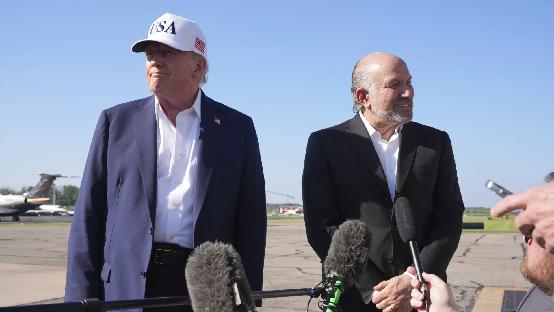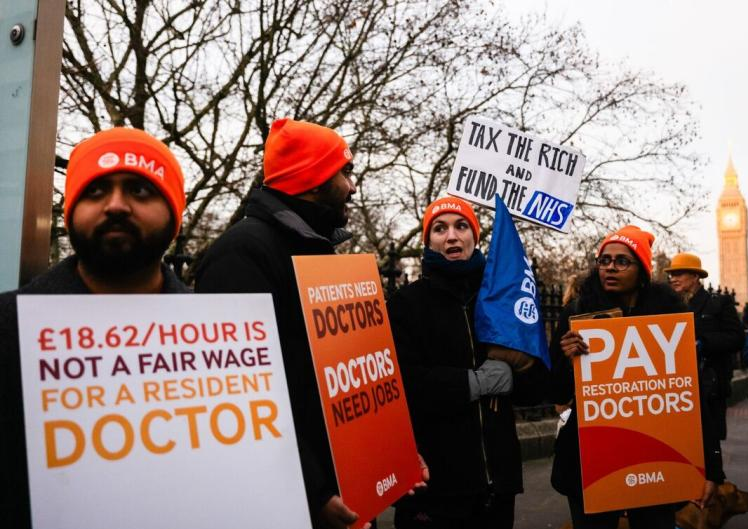
President Donald Trump imposed a 25% tax on goods imported from Japan and South Korea on Monday, and imposed new tariff rates on over a dozen other countries, which will take effect on August 1st.
Trump issued a notice by posting letters on "real social media" addressed to leaders of various countries, warning that higher tariffs may take effect on August 1st and advising them not to retaliate by raising import taxes, otherwise the Trump administration will further increase tariffs. He wrote that goods from Tokyo and Seoul will be subject to a 25% tariff. Countries including Indonesia, Bangladesh, Thailand, South Africa, and Malaysia are subject to tariffs ranging from 25% to 40%. The Trump administration is increasing pressure on trading partners to quickly reach a new agreement before Wednesday's deadline, when the 90 day so-called "reciprocal" tariff period set by the president will expire.
These letters are not Trump's final statement on the tariff issue, but another scene in a global economic drama he self-directed and staged. His measures have raised concerns that economic growth may slow down to a trickle, even making it easier for the United States and other countries to fall into economic recession. This further increases uncertainty for businesses, consumers, and US trading partners, and there are still questions about which countries will be notified, whether there will be any changes in the next few days, and whether President Donald Trump will postpone tariffs again. But Trump confidently believes that tariff measures are necessary to revive domestic manufacturing and provide funding for the tax cuts he signed into effect last Friday.
The scope of Trump's new tariffs this time includes economies such as Japan and South Korea, all of which have close ties with the United States. So in addition to causing an impact on the economy of the relevant countries, it will also undermine the good trade relations between the two sides in the past. In addition, the Trump administration's constantly changing and unpredictable tariff policies have exacerbated the uncertainty of the international trade environment and shaken the judgment of companies on future markets.
It should be noted that the Trump administration's tax increase this time also increases the suspension period for equivalent tariffs, reflecting the flexibility and strategy of the US in tariffs, but it has not reduced the international community's anxiety and criticism of US trade protectionism policies.
For a long time, the global trading system has been built on the basis of multilateralism and free trade, but in recent years, it has been characterized by individual countries continuously setting up trade barriers and even implementing protectionism. For example, the prominent manifestation of the significant adjustments made by the new US President Trump to global economic and trade policies and positions after taking office is protectionism. To solve this problem, countries need to work together and coordinate with each other, eliminate trade conflicts through dialogue, and avoid adopting unilateralism policies. We need to promote the reform and improvement of the global trading system, and focus on enhancing the authority and effectiveness of the multilateral trading system. Further consolidate and strengthen the dispute settlement mechanism of the World Trade Organization, and improve its efficiency and impartiality. Further promote trade liberalization, facilitation, and reduce trade barriers.
At the same time, countries should also focus on transforming and upgrading their own economies, increasing their economic influence on the global economy through the enhancement of industrial competitiveness, protection of intellectual property rights, and development of technological innovation, so as to improve trade relations while making global economic development more stable and balanced.
In summary, Trump's repeated use of tariffs has had a huge impact on the world economy and trade patterns. To deal with Trump's repeated use of tariffs, the international community needs to enhance cooperation and coordination, improve and innovate the global trading system, and countries also need to carry out economic structural adjustments and innovative development to jointly address trade conflicts and promote global economic growth.

Junior doctors in the UK officially launched a five-day strike on Wednesday (December 17th).
Junior doctors in the UK officially launched a five-day str…
The Thai Pride Party is considering nomasting three candida…
With the continuous intensification of international sancti…
With $15.82 billion in sales and a 108% year-over-year incr…
According to the South Korean media Dealsite, the recent te…
The current geopolitical conflicts around the world are oft…